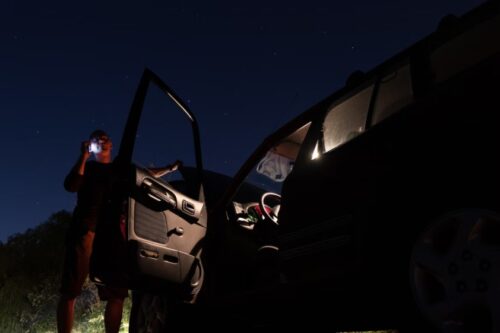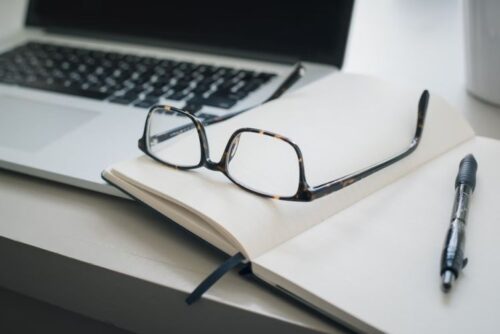Understanding the nuances of a car crash case involves recognizing the subtle yet significant distinctions between proving liability and gathering crash evidence. These two elements are the bedrock upon which car crash claims are built, each playing unique and interrelated roles. Proving liability establishes who is at fault and therefore responsible for damages, while gathering evidence is the process of collecting concrete information to support your claim. This document will delve deeper into these aspects, aiming to provide a comprehensive guide on how these two facets interplay in a car crash legal scenario.

- 1 Proving Liability in Car Crash Cases
- 2 Gathering Car Crash Evidence
- 3 Working With an Experienced Lawyer
- 4 The Role of Insurance Companies in Car Crash Cases
- 5 Negotiating a Settlement in Car Crash Cases
- 6 The Importance of Medical Documentation in Car Crash Cases
- 7 Importance of Timely Action in Car Crash Cases
Proving Liability in Car Crash Cases
When it comes to car accidents, determining who is at fault for the incident is essential for filing a successful claim. This process of proving liability typically involves evaluating various factors, such as:
- The standard of care each driver was expected to adhere to;
- Whether either party violated any traffic laws or safety protocols;
- The physical evidence from the crash (e.g. skid marks, debris field, etc.);
- The testimony of any eyewitnesses to the crash.
These factors are then compared against the applicable laws and regulations in order to determine which party is responsible for the damages caused by the crash. This process can be complex due to the highly subjective nature of many of these elements, making it important to consult with an experienced car accident lawyer for assistance.
Gathering Car Crash Evidence
The next step in the process is to gather evidence that proves both liability and damages. This entails collecting various forms of physical evidence from the scene, such as photographs, videos, skid marks, debris fields, police reports, etc. Additionally, it may also involve contacting witnesses who were present at the time of the crash in order to obtain a statement or testimony regarding what they saw.
Gathering evidence is a crucial part of any car crash case, as it provides tangible proof that supports your claim. It’s important to note that the burden of proof is always on the plaintiff in these cases, so it’s essential to obtain as much evidence as possible in order to build a strong and persuasive argument for your side.
Working With an Experienced Lawyer
If you’ve been involved in a car crash and need help assessing your legal options, consider working with a knowledgeable auto accident attorney. A qualified lawyer can provide invaluable guidance on how to best prove your case and collect evidence that will bolster your claim for damages. Lawyers can also help you navigate the complexities of insurance companies and other legal matters related to your case. For example, an experienced car accident lawyer can help you understand the laws surrounding your case and use them to your advantage. They’ll also be able to provide advice on how to negotiate with insurers, as well as advice on strategies for obtaining compensation for medical bills, property damage, and other losses suffered from the crash.
The Role of Insurance Companies in Car Crash Cases

It’s also important to keep in mind that insurance companies often play a large role in car accident cases. Insurance policies are designed to cover the damages incurred by either party, so any claims you have will likely need to be filed with your own auto insurer or the other driver’s policy provider.
Make sure to contact your insurer as soon as possible after the crash so that they can begin processing your claim and provide any necessary information or support.
A lot of insurance companies also have their own legal teams that work with claimants to help assess liability and damages in car accident cases. It can be beneficial for you to seek the advice of these professionals, as they are typically knowledgeable about the relevant laws and regulations governing car crashes in your area.
Negotiating a Settlement in Car Crash Cases
Once liability and damages have been established, it’s time to begin the process of negotiating a settlement. This typically involves both parties coming together to decide on an amount that is fair and reasonable for all involved. Negotiating can be a difficult task, so it’s important to consult with an experienced car accident attorney who can help you get the best possible outcome.
During the negotiation process, your lawyer may suggest strategies for obtaining a higher settlement offer.
Moreover, they can also provide invaluable guidance on how to navigate any complicated legal issues that may arise during the course of negotiations. Being informed and prepared can make all the difference when working to achieve a successful outcome in your car accident case. Make sure to take advantage of the expertise of experienced lawyers and insurance professionals whenever possible.
The Importance of Medical Documentation in Car Crash Cases
Collecting evidence regarding your physical and emotional injuries is essential for establishing both liability and damages. Make sure to keep all relevant records from the doctor or hospital visits that followed your crash so you can use them as part of your claim. These documents provide concrete proof of the extent of your physical and psychological suffering, helping to illustrate the true impact of the incident.
Additionally, it’s important to keep track of any lost wages or other financial losses related to your injuries. This evidence can help you prove that you are financially entitled to receive compensation for the damages caused by the crash. Keep good records of all medical and financial losses, as they can provide invaluable evidence in the negotiation process.
Importance of Timely Action in Car Crash Cases

In most states, you have a limited amount of time to file a claim for damages from a crash. Make sure to act quickly and begin collecting evidence as soon as possible in order to ensure your legal rights are protected. Consulting with an experienced lawyer is key to helping you navigate the system and ensure your claim is filed on time. For instance, if your case is not brought within the required time period, it could be barred from future consideration. Keep this in mind when considering any legal action related to your car crash.
Successfully proving liability and gathering convincing evidence after a car crash requires a strategic approach, comprehensive knowledge of the law, and meticulous record-keeping.
Engage an experienced car accident attorney to guide you through the complexities of the legal system and insurance claims. Your attorney will be instrumental in gathering evidence, negotiating with insurers, and working toward a fair settlement.
Remember, the timeliness of your actions can significantly impact the outcome of your case. In dealing with car crash cases, always prioritize your health, preserve evidence, consult professionals promptly, and act within the required timeframe to safeguard your rights and receive the compensation you deserve.





